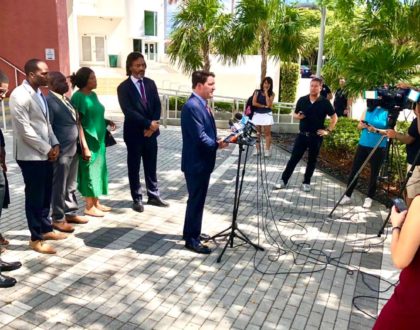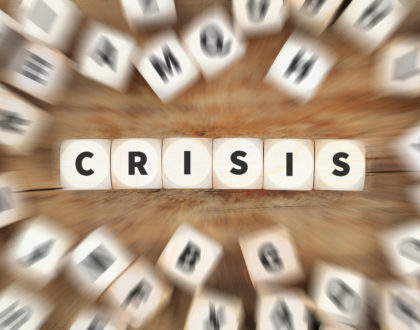Healthcare Crisis Communication Plan for Healthcare Providers

by JPH
The coronavirus pandemic brings about new, and for many communications and public relations professionals, unimaginable challenges. This is a healthcare, societal and economic crisis unseen in many generations.
The news media has and will continue to play a central role in our lives as the story of coronavirus unfolds. That means the role of corporate communications and healthcare pr professionals is going to be essential in sharing critical, accurate information that can first and foremost ease fears or responsibly warn a community about a development in this story.
This is the perfect example of why modern public relations and communications professionals must operate as a brand (businesses) beat reporters and not ‘PR’ spinsters, especially in the case of a healthcare crisis.
Business communications professionals, especially those working for healthcare providers and hospitals, take a deep breath. Many of the keys to a time like this are manageable and familiar.
Crisis Communication Planning Tips for Healthcare Providers
You don’t need all that red tape.
Successful external communications starts with fluid internal communications.
Review what your current procedures are for doctors or department managers to share news and updates with a communications department or public relations team. If there is too much red tape, try to cut it. Obviously operating with caution and respecting patient privacy laws never waver, but during a crisis, a request from a member of the media that comes in the morning should not be answered after lunch. That is a great way to have journalists lose trust and a sense of reliability that is essential to getting your business’s message out the right way.
Go on Offense
Because this is specifically a healthcare crisis, if you are a hospital, doctor’s office, health insurance company, medical services provider, etc…there is likely going to be an angle to this enormous story that you can pitch the news media to position yourself as a trusted subject matter expert. You or someone on your staff has knowledge in their area of practice or business that can be helpful to the general public. Health public relations and communications professionals should be harvesting that information and pitching it to the appropriate news outlets.
Reporters in Florida are essentially in a hurricane mode. This is going to be the main, if not the only story covered for weeks. Every time something new breaks, the story will get more play. When you are a reporter working in extended coverage or “hurricane mode” you are looking, begging, pleading sometimes for content of value that will allow your newspaper, online media outlet, or radio or TV station tease a story about coronavirus and fill a newscast with the imperative content.
You probably are understaffed
Hospitals and doctor’s groups in most major metropolitan areas in Florida have excellent PR professionals in-house. Depending on the size they may have several in that department. For this healthcare crisis, which will be ongoing and the center of the news universe for the foreseeable future, whatever the number is, it is not enough to get it right.
Now is the time to consider adding to your staff or bring in outside council. Besides having more crisis communications expertise and or a public relations agency that can offer media relations or media training services is most obviously a benefit. That extra skill is matched by the reality that the in house department can risk burnout with a crisis like this which will have such a long shelf life. Overworked employees is a quick way to pull the carpet out from under consistently executing a strategy that benefits the general public while position a healthcare provider or hospital as a leader and expert during this time of community need.
Did we mention speed and accuracy!
This point is another reason why more staff is needed for the coronavirus crisis communications plan. In the world of 24-hour news, local-news outlets continuing coverage, and social media silence can be deafening. If a reporter needs some info on a story and you can only get 50% of it approved by hospital or office leadership, report the approved amount. Let a journalist know you are working and their questions are important to you as a media relations professional. If you ask ten reporters would they rather have a new bit of information every hour during ongoing coverage of an issue or one press conference every other day with a large volume of news, the vast majority if not all of them would say give me the bits of accurate information as often as you can.
There are more newscasts, more news producing outlets and social media that reporters and producers now have to feed. As a communications professional engaged in media relations, understanding what a reporter needs and why will help you build the most effective crisis communications and public relations strategy for your healthcare client or company
Brandstory Communications is a Florida- based public relations agency that specializes in healthcare crisis communications and media relations. Brandstory stands out as a non-traditional public relations firm because it is owned, operated, and staffed by former news reporters who utilize their insider knowledge of the news media in support of the PR agency’s clients.
Brandstory staff have covered crisis as reporters for more than 30 years and have worked as public relations crisis communicators for another 15. Learn more about our crisis communication services here or contact us to get started today.
Recommended Posts

Press Conference – Miami Beach Drowning Case – Law Firm Public Relations
September 7, 2022

Coronavirus PR Firm Florida
March 16, 2020

Crisis Communication and the Coronavirus Pandemic
March 16, 2020
